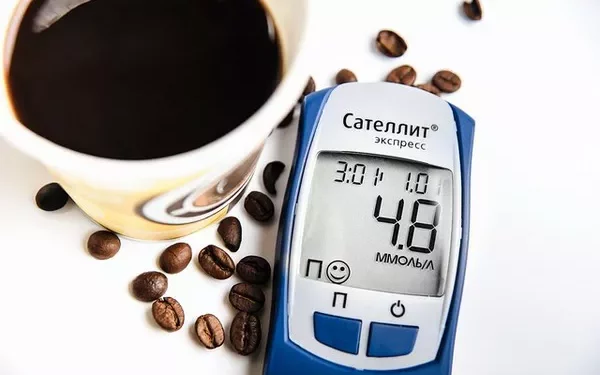Reactive hypoglycemia is a condition characterized by a significant drop in blood glucose levels following a meal. This phenomenon can occur in individuals without diabetes and can be a troubling health issue. While reactive hypoglycemia can stem from various factors, including dietary habits and metabolic disorders, one lesser-known cause is the presence of certain tumors. This article will explore the tumors associated with reactive hypoglycemia, their mechanisms, symptoms, diagnosis, and treatment options.
Understanding Reactive Hypoglycemia
What Is Reactive Hypoglycemia?
Reactive hypoglycemia occurs when blood sugar levels drop below normal (typically less than 70 mg/dL) within a few hours after eating. It is often characterized by a rapid onset of symptoms, which can include:
- Sweating
- Shakiness
- Dizziness
- Heart palpitations
- Anxiety
- Confusion
- Fatigue
- Hunger
Symptoms may vary in severity from person to person and can lead to significant discomfort and anxiety regarding food intake.
How Does Reactive Hypoglycemia Occur?
After eating, the body releases insulin to help regulate blood sugar levels. In a healthy individual, insulin helps transport glucose into the cells for energy. However, in reactive hypoglycemia, the body may produce too much insulin in response to a meal, leading to a rapid drop in blood sugar levels.
Common Causes of Reactive Hypoglycemia
While reactive hypoglycemia is often linked to dietary choices and lifestyle factors, it can also be caused by underlying medical conditions. Some common causes include:
Dietary Factors: High carbohydrate meals can lead to excessive insulin release.
Hormonal Imbalances: Disorders affecting hormones that regulate glucose can cause hypoglycemia.
Medications: Certain medications can impact insulin levels and glucose metabolism.
Gastrointestinal Surgery: Procedures like gastric bypass can alter how food is processed.
Tumors and Reactive Hypoglycemia
Some tumors can produce hormones or substances that lead to reactive hypoglycemia. The most notable of these are insulinomas and non-insulin-producing tumors that can affect glucose metabolism.
1. Insulinomas
What Are Insulinomas?
Insulinomas are rare tumors of the pancreas that produce excessive amounts of insulin. They are usually benign (non-cancerous) but can cause significant hypoglycemia due to unregulated insulin secretion.
Mechanism of Action
The hypersecretion of insulin from insulinomas leads to an increase in glucose uptake by tissues, causing blood glucose levels to drop significantly. These tumors can be solitary or multiple and are often small, making them difficult to detect.
Symptoms of Insulinomas
Patients with insulinomas may experience symptoms of hypoglycemia, including:
- Sweating
- Palpitations
- Confusion
- Dizziness
- Loss of consciousness in severe cases
Symptoms typically occur a few hours after meals when insulin levels peak.
2. Non-Insulinoma Tumors
Certain tumors, while not directly producing insulin, can influence glucose metabolism and cause reactive hypoglycemia. Some of these tumors include:
Gastrinomas
Gastrinomas are neuroendocrine tumors that secrete gastrin, a hormone that stimulates gastric acid production. High levels of gastrin can lead to increased insulin secretion due to heightened stomach acidity and accelerated gastric emptying.
VIPomas (Vasoactive Intestinal Peptide Tumors)
VIPomas produce vasoactive intestinal peptide (VIP), which can cause severe diarrhea and electrolyte imbalances. The excessive secretion of VIP can lead to hypoglycemia by influencing insulin secretion and promoting insulin resistance.
Glucagonomas
Glucagonomas are tumors that produce glucagon, a hormone that usually raises blood glucose levels. However, in certain scenarios, elevated glucagon levels can lead to compensatory insulin secretion, resulting in hypoglycemia.
Symptoms and Diagnosis of Tumor-Induced Reactive Hypoglycemia
Symptoms of Tumor-Induced Reactive Hypoglycemia
The symptoms of reactive hypoglycemia associated with tumors are generally consistent with those of regular hypoglycemia but may also include specific signs linked to the type of tumor. For instance:
Insulinoma Symptoms: Hypoglycemic episodes after meals, confusion, sweating, and palpitations.
Gastrinoma Symptoms: Abdominal pain, diarrhea, and signs of hypoglycemia.
VIPoma Symptoms: Severe diarrhea, electrolyte imbalances, and hypoglycemia.
Diagnosis of Tumor-Induced Reactive Hypoglycemia
Diagnosing tumor-induced reactive hypoglycemia can be challenging. The following steps are typically involved:
Medical History and Symptoms Review
A thorough medical history is essential. Patients should document their symptoms, including when they occur and their relation to meals.
Blood Tests
Blood tests play a crucial role in diagnosing reactive hypoglycemia. A glucose tolerance test may be conducted to monitor blood sugar levels after ingesting a glucose-rich drink.
Fasting Insulin Levels: High insulin levels during hypoglycemic episodes may indicate insulinoma.
Hormone Levels: Testing for gastrin, VIP, and glucagon levels can help identify non-insulinomas.
Imaging Studies
If a tumor is suspected, imaging studies such as:
CT Scan: A computed tomography scan of the abdomen can help visualize pancreatic tumors.
MRI: Magnetic resonance imaging can provide detailed images of soft tissues, including tumors.
Endoscopic Ultrasound (EUS): This technique involves using ultrasound imaging through an endoscope to identify small tumors in the pancreas.
Treatment Options for Tumor-Induced Reactive Hypoglycemia
Treatment for tumor-induced reactive hypoglycemia focuses on managing symptoms and addressing the underlying tumor. Options include:
1. Surgical Intervention
If an insulinoma is diagnosed, surgical removal is often the treatment of choice. Surgery can involve:
Enucleation: This procedure removes only the tumor, preserving as much pancreatic tissue as possible.
Pancreatectomy: In cases where multiple tumors are present, a more extensive removal of pancreatic tissue may be necessary.
2. Medical Management
For patients unable to undergo surgery or with non-insulinomas, medical management may be required:
Dietary Modifications
Dietary adjustments can help manage symptoms of reactive hypoglycemia:
Frequent, Small Meals: Consuming smaller, more frequent meals can help stabilize blood sugar levels.
Balanced Diet: Focus on a balanced diet rich in complex carbohydrates, protein, and healthy fats to maintain steady glucose levels.
Limit Simple Carbohydrates: Reducing intake of sugary foods can help prevent rapid spikes in insulin.
Medications
Certain medications may help manage symptoms and regulate blood sugar levels:
Diazoxide: This medication inhibits insulin secretion and can help prevent hypoglycemic episodes in insulinoma patients.
Octreotide: This synthetic somatostatin analogue can suppress hormone secretion from tumors like gastrinomas and VIPomas.
3. Monitoring and Support
Continuous monitoring of blood sugar levels is essential for managing reactive hypoglycemia:
Regular Check-Ups: Patients should have regular follow-up appointments to monitor symptoms and adjust treatment as needed.
Support Groups: Joining support groups or connecting with others who have similar experiences can provide valuable emotional support and resources.
See also: What is Non-Diabetic Hypoglycemia?
Conclusion
Reactive hypoglycemia can be a distressing condition, particularly when caused by tumors. Understanding the underlying causes and mechanisms is crucial for effective management. Insulinomas, gastrinomas, VIPomas, and glucagonomas can lead to significant fluctuations in blood sugar levels, resulting in various symptoms.
Identifying and diagnosing these tumors requires a comprehensive approach, including medical history, blood tests, and imaging studies. Treatment often involves a combination of surgical intervention, dietary modifications, and medical management.
By understanding the relationship between tumors and reactive hypoglycemia, patients can work with healthcare providers to develop effective treatment plans that address their specific needs. Early detection and appropriate management can lead to improved quality of life and better health outcomes for individuals affected by this condition.
Related topics:


























